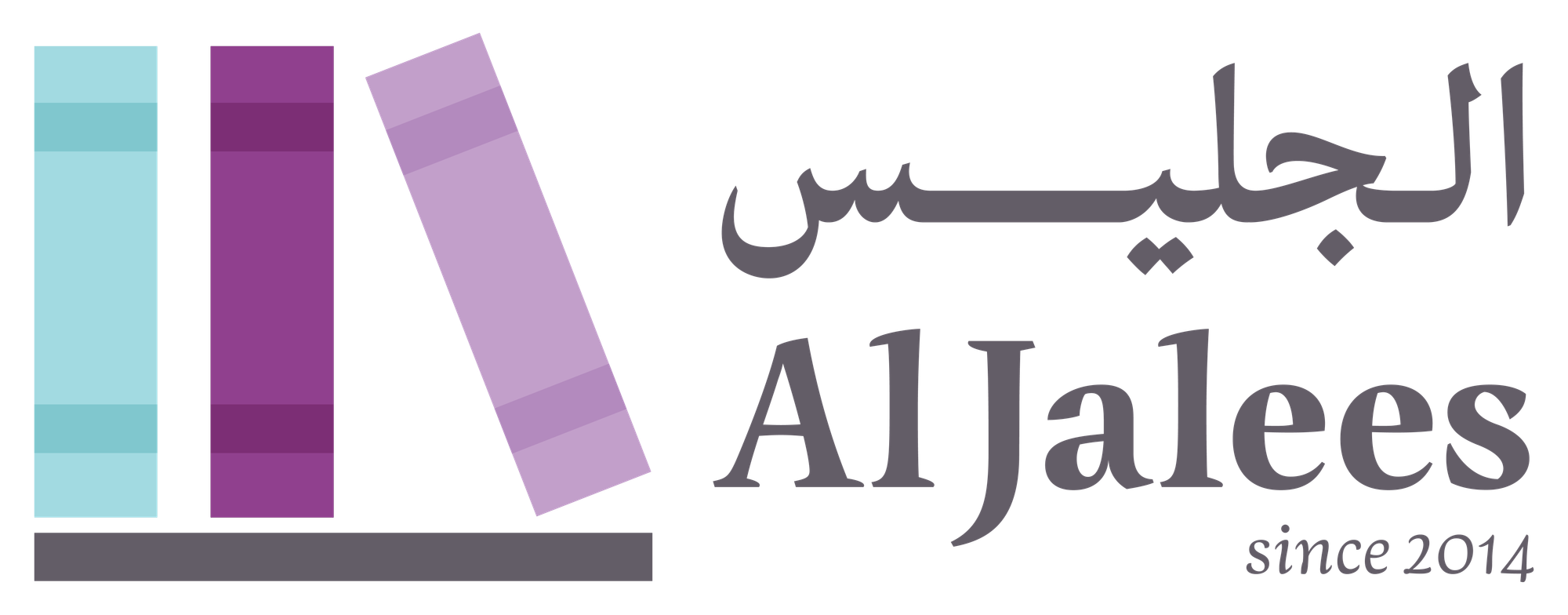The Power of the Previvor Mindset, by Rana Hajjar
With the power of prevention, this piece explores the mindset of the previvor, proving that strength begins not in treatment, but in the choice to know, to act, and to live with intention. Read part 2/2 of our Voices of Hope articles.
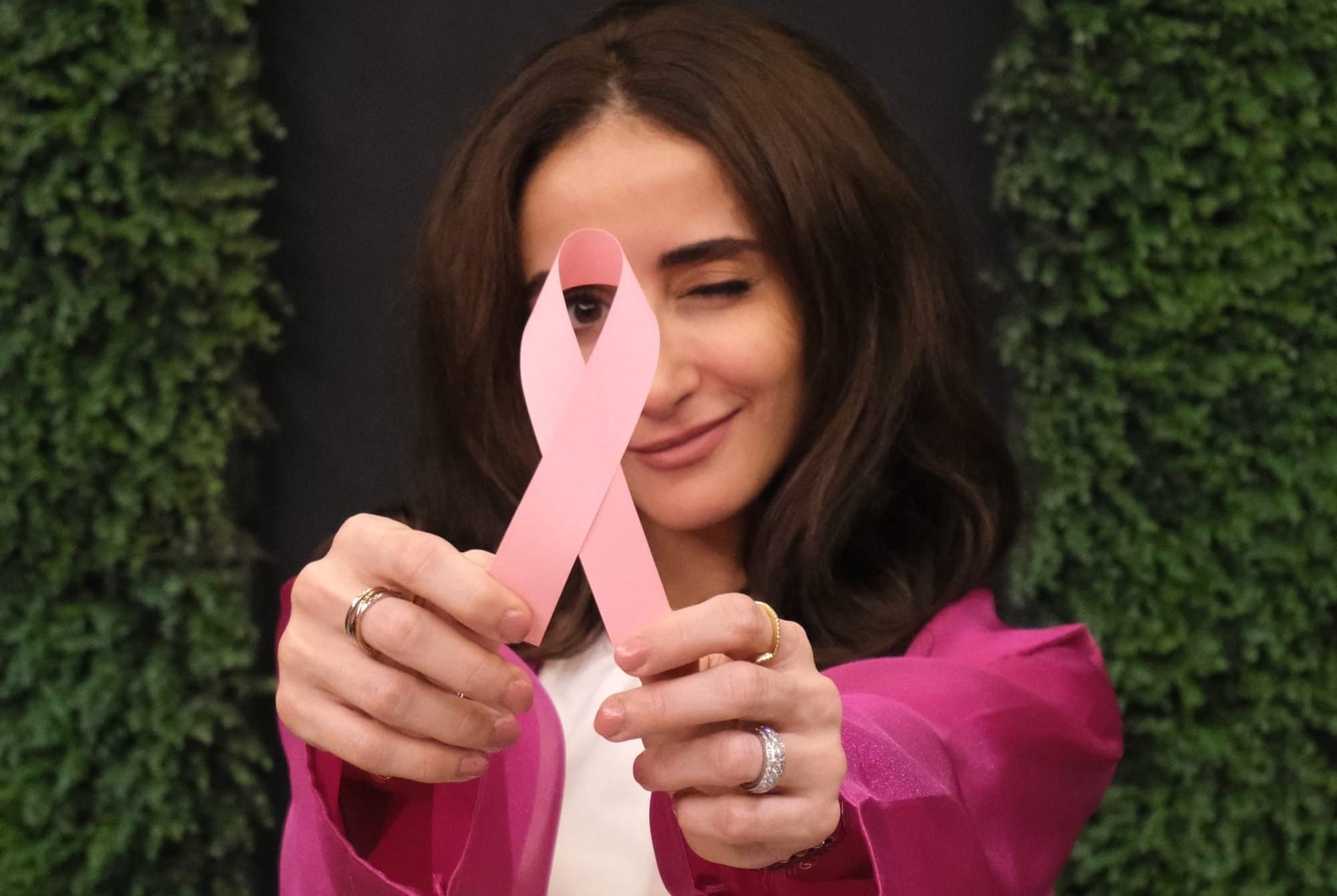
Previvorship isn’t just a medical decision. It begins with the choice to know your risks, a mission to survive, thrive, and prevent cancer, and soon becomes something far greater. You start facing every challenge with intention and courage, turning uncertainty into strength. Over time, it stops being a response to fear and becomes a way of life.
Prevention asks for a different kind of courage, it begins when someone chooses to know, and when knowing might change everything. A previvor is a survivor of a predisposition to cancer, someone who makes a life changing, often invasive decision to reduce their inherited risk of developing the disease. The term was coined by FORCE (Facing Our Risk of Cancer Empowered), a nonprofit organization founded in 1999 by Sue Friedman, herself a BRCA1 mutation carrier and breast cancer survivor.
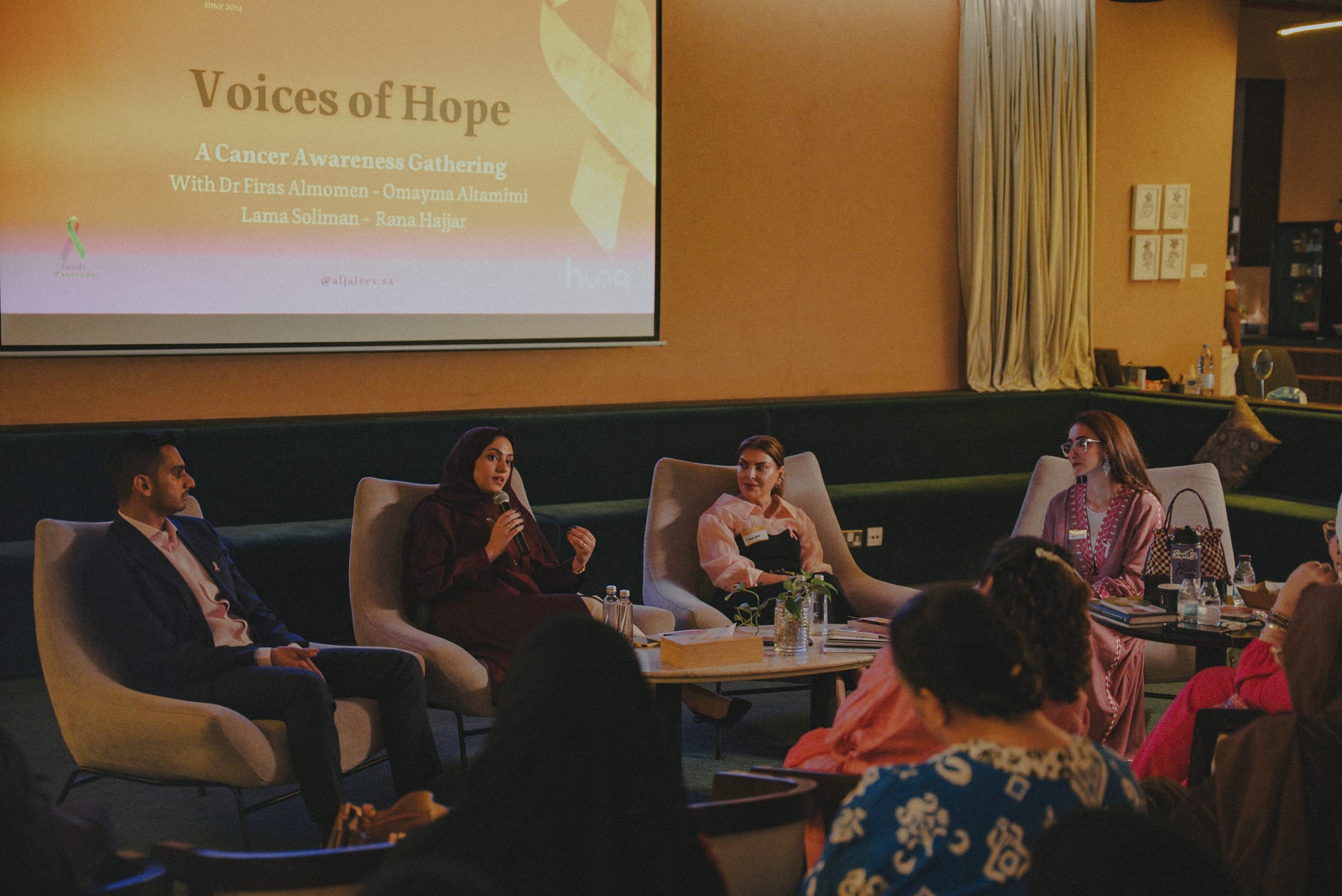
Many believe that knowing their risk only breeds fear and anxiety. The idea of uncovering one’s vulnerability to illness can be terrifying, and few people want confirmation that suffering awaits them. At our core, humans crave comfort and safety; no matter how strong we are, we instinctively turn away from pain.
Prevention as Power
Preventing disease is an ambitious goal, some might even call it unattainable yet science has shown that it’s possible to detect high risk and act before illness begins.
Previvors approach decisions with measured clarity, we analyze the logic, acknowledge the emotion, weigh the risks and opportunities, and choose the path that empowers us to stay in command of our lives. It’s almost like conducting a SWOT analysis, but for life itself.
Facing the risk of breast cancer and choosing to prevent it entirely becomes a defining mindset, a reminder that if we can confront something this profound, nothing else can truly stop us. Prevention, after all, is its own form of power.
Read part 1/2 of Voices of Hope article for more information on the science behind prevention and treatment, and to learn more about the events.
“Prevention is not about predicting the future, it’s about shaping it.”
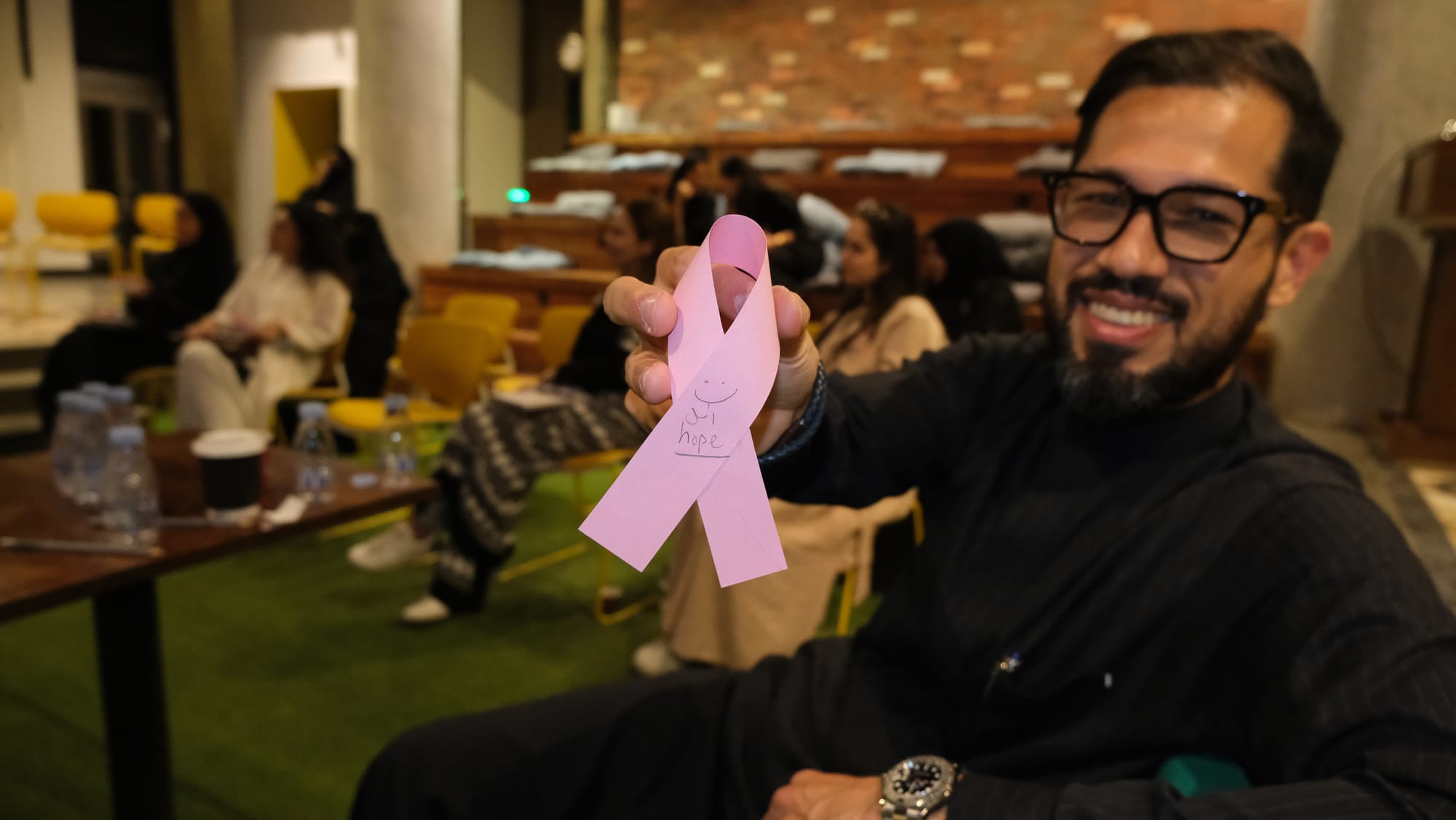
Breaking the Silence
When Saudi Previvor first began this conversation in 2016–2017, it wasn’t easily received. Many found it too bold, even unsettling. But with time and persistence, perceptions began to shift. People started listening and some even discovered they carried the gene mutation and became candidates for preventive surgery.
Our story was emotional and frightening, yet it left an imprint. It encouraged others to act, to protect themselves, and to speak more openly.
We must be honest about the risks, yet gentle and understanding of the fear that surrounds them. We can embody the message of Feel the Fear and Do It Anyway, by Dr Susan Jeffer — to acknowledge fear without letting it lead our lives. What we truly need are informed, empowered patients: people who live with strength, seek knowledge, and use medical guidance to take charge of their wellbeing.
Words of Wisdom
A strong support system is essential. No one can or should face it alone. It’s not only about surviving disease; it’s about accepting that illness is a part of life, and that with the right support and knowledge, people can move beyond survival to truly thrive.
As part of Voices of Hope Riyadh, Adala from Al Jalees team sat down with Dr. Felwa Almarshad, to discuss what “true awareness” really means. She emphasized that awareness isn’t confined to symbols or campaigns, it’s a daily act of mindfulness and a sense of responsibility.
“True awareness,” she explained, “is knowing when to look, what to look for, and when to seek help.”

She urged that self-examinations should begin early, ideally around age fourteen or fifteen, allowing teenagers to know their bodies very well. A self check involves noticing texture, symmetry, and any unfamiliar change using the opposite hand for each breast in small circular motions, including the armpit and clavicle areas. The best time is a few days after menstruation, when hormonal changes settle. “If something feels different,” she noted, “that’s when you see a doctor.”
Dr. Felwa explained that early detection not only increases survival rates but also preserves quality of life. When detected early, treatment is often simpler and less invasive, sometimes just removing the affected area. In later stages, a full mastectomy may be necessary, nevertheless, reconstruction offers both physical restoration and emotional healing. Modern techniques, from implants to tissue reconstruction, allow women to regain their natural shape and sense of wholeness.
She also addressed common myths that sugar, deodorant, or tight clothing cause breast cancer, clarifying that none of these have been proven links. While healthy habits can help lower risk, the absence of family history doesn’t guarantee protection, as most breast cancer cases are not hereditary.
Finally, she reminded us that although rare, men can also develop breast cancer, accounting for about one percent of cases. A pink and blue ribbon now represents awareness and support for them as well.
“Breast cancer is not only a woman’s disease,” she said. “Awareness belongs to everyone.”
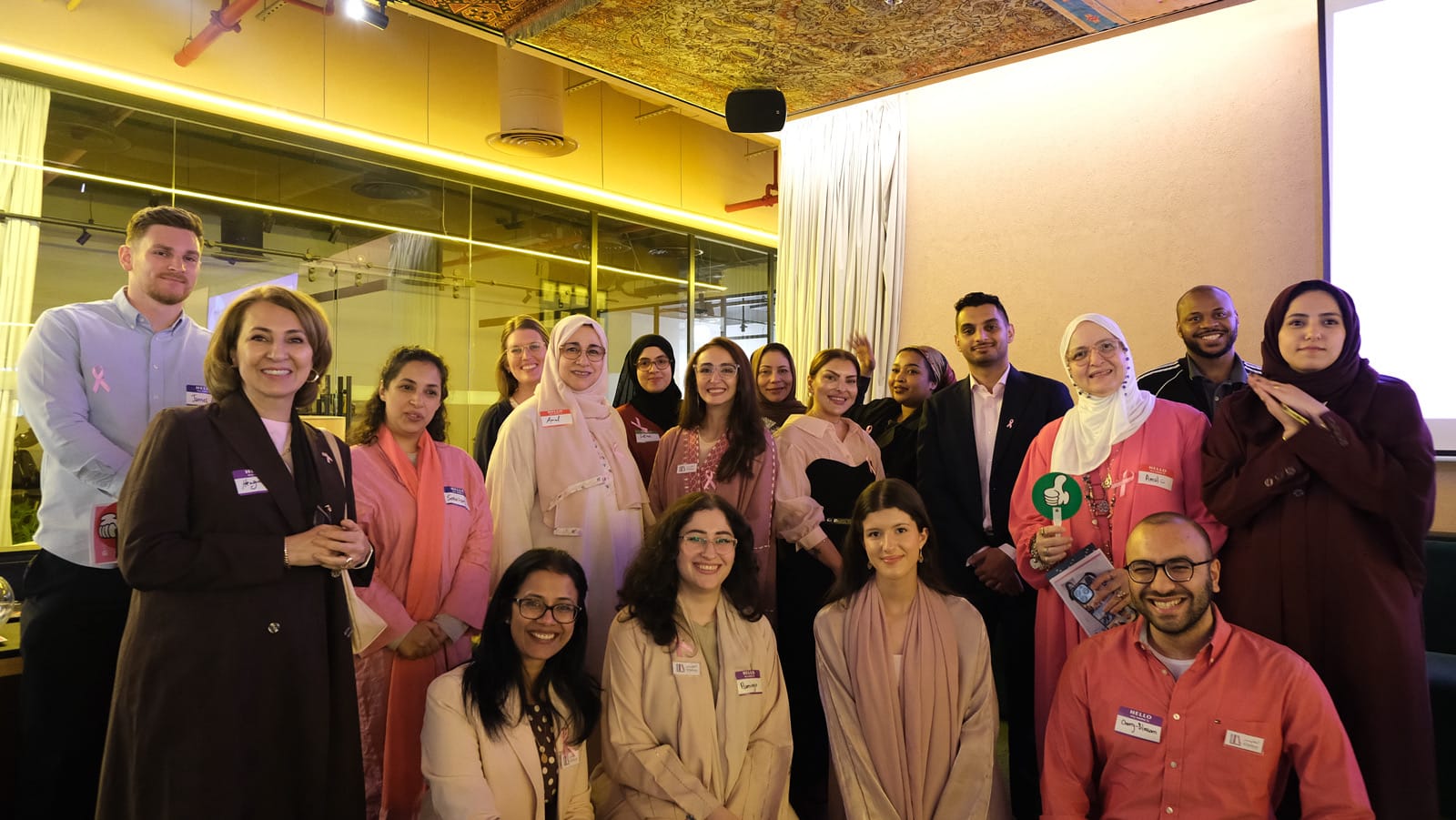
The Power of Friendship
A Testimonial by Suzan Al Safady
"The support of friends during that time was truly part of the healing process. When I looked into their eyes, I never felt that they saw me as someone who had changed. Even when I struggled to recognize myself in the mirror, their gaze reminded me that I was still me. With my friends, I could forget that I was sick. It felt as if I were stepping into a time machine, returning to the months before my diagnosis, or perhaps traveling with them into a parallel, gentler world where everything felt light again, just enough time to recharge my energy and rediscover joy."
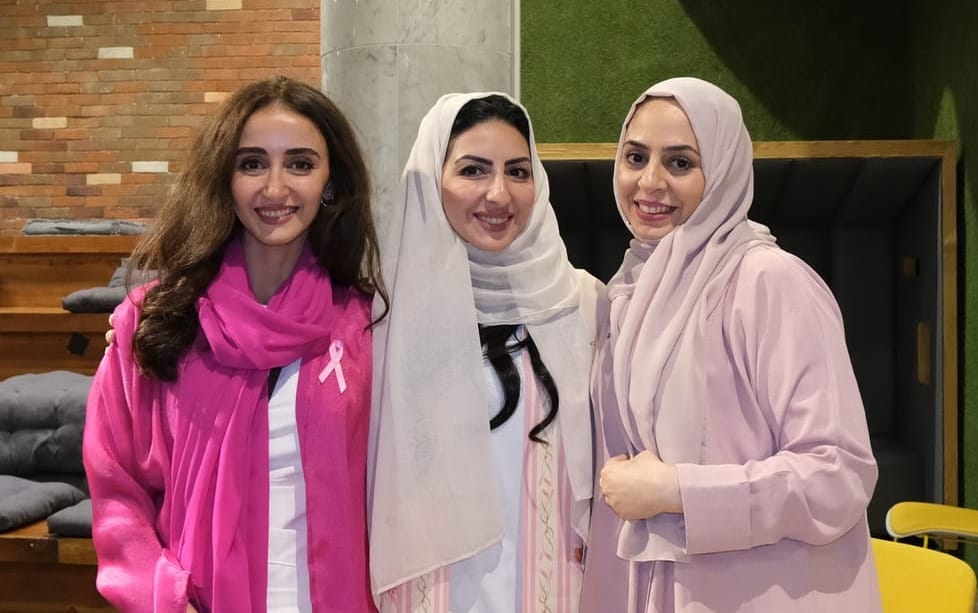
As October draws to a close, let this be a reminder to take care of yourself in the ways that truly matter. Consider your medical checkup part of your self-care plan. Postpone the pedicure or facial to next month, and choose detection today. Fear is only an emotion, and avoiding it can cost far more than facing it.
With love,
Rana_Previvor
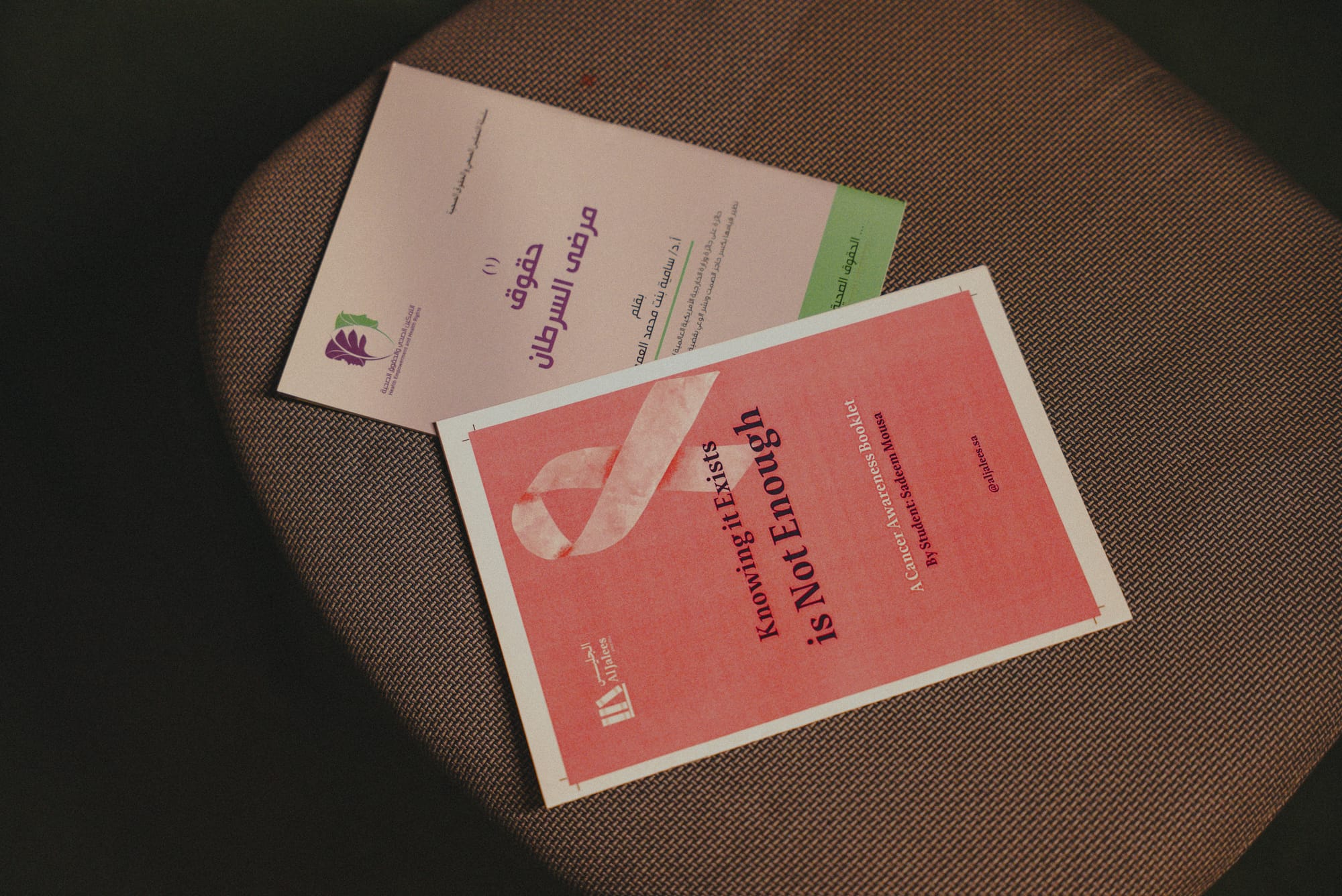
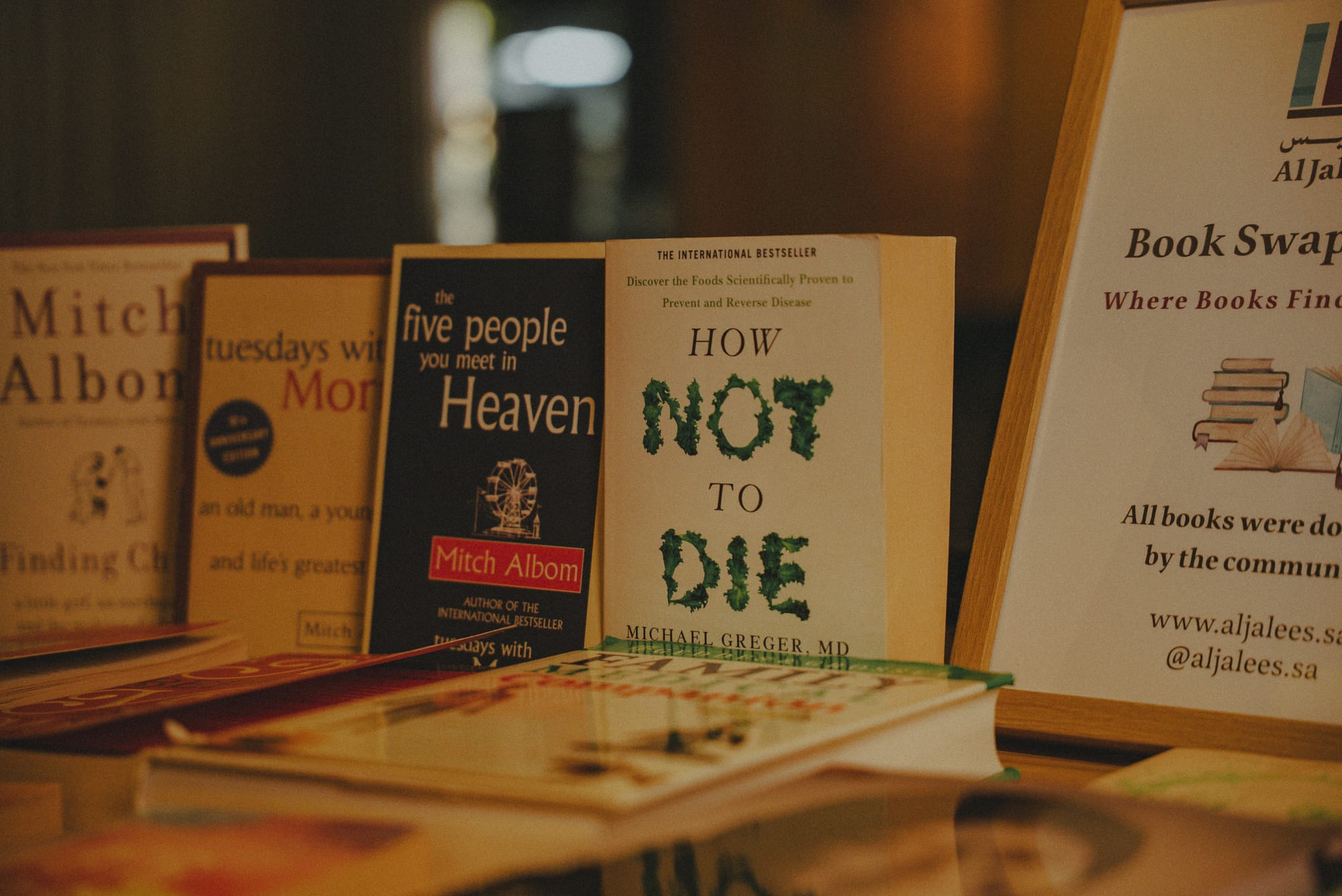
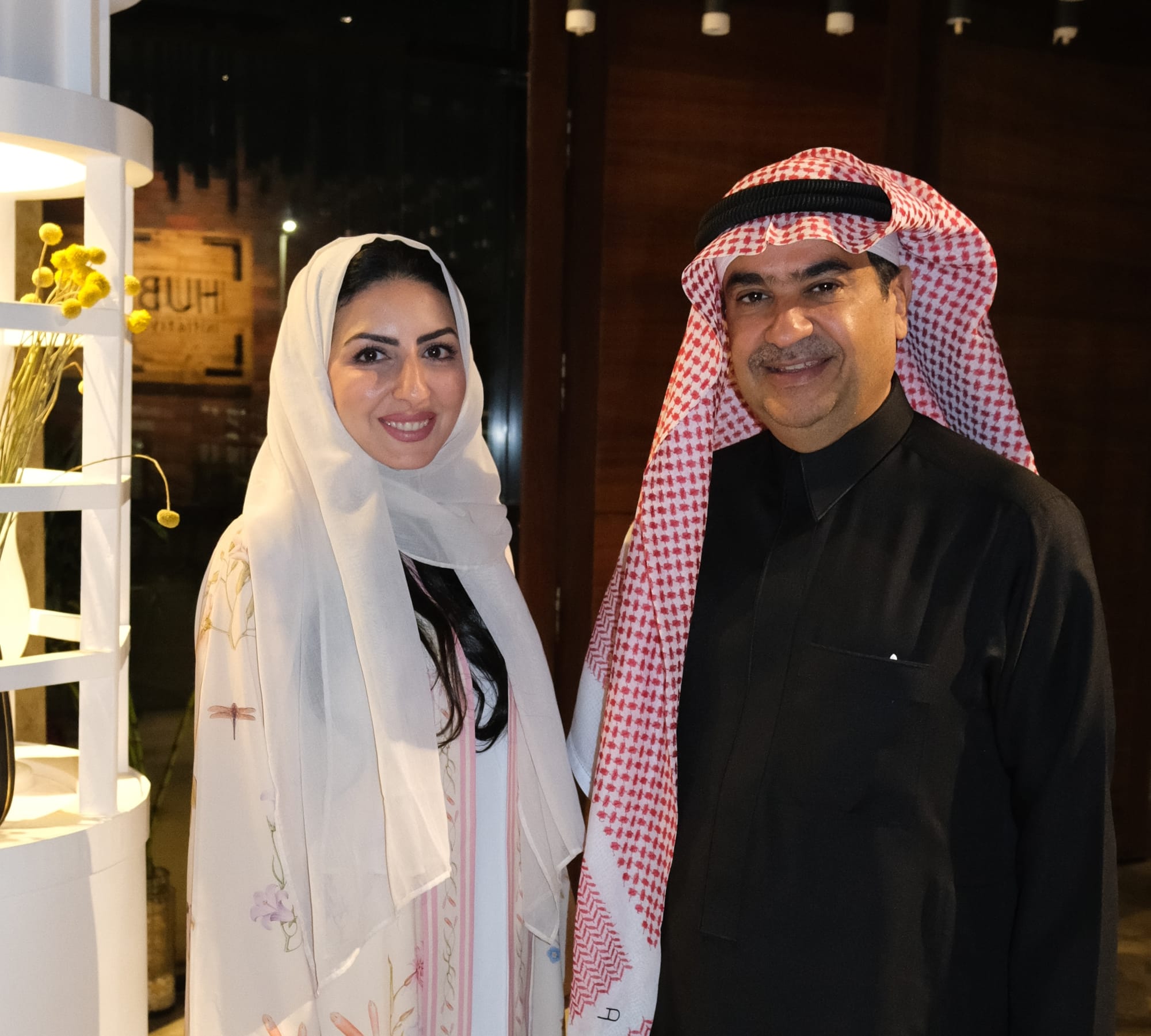
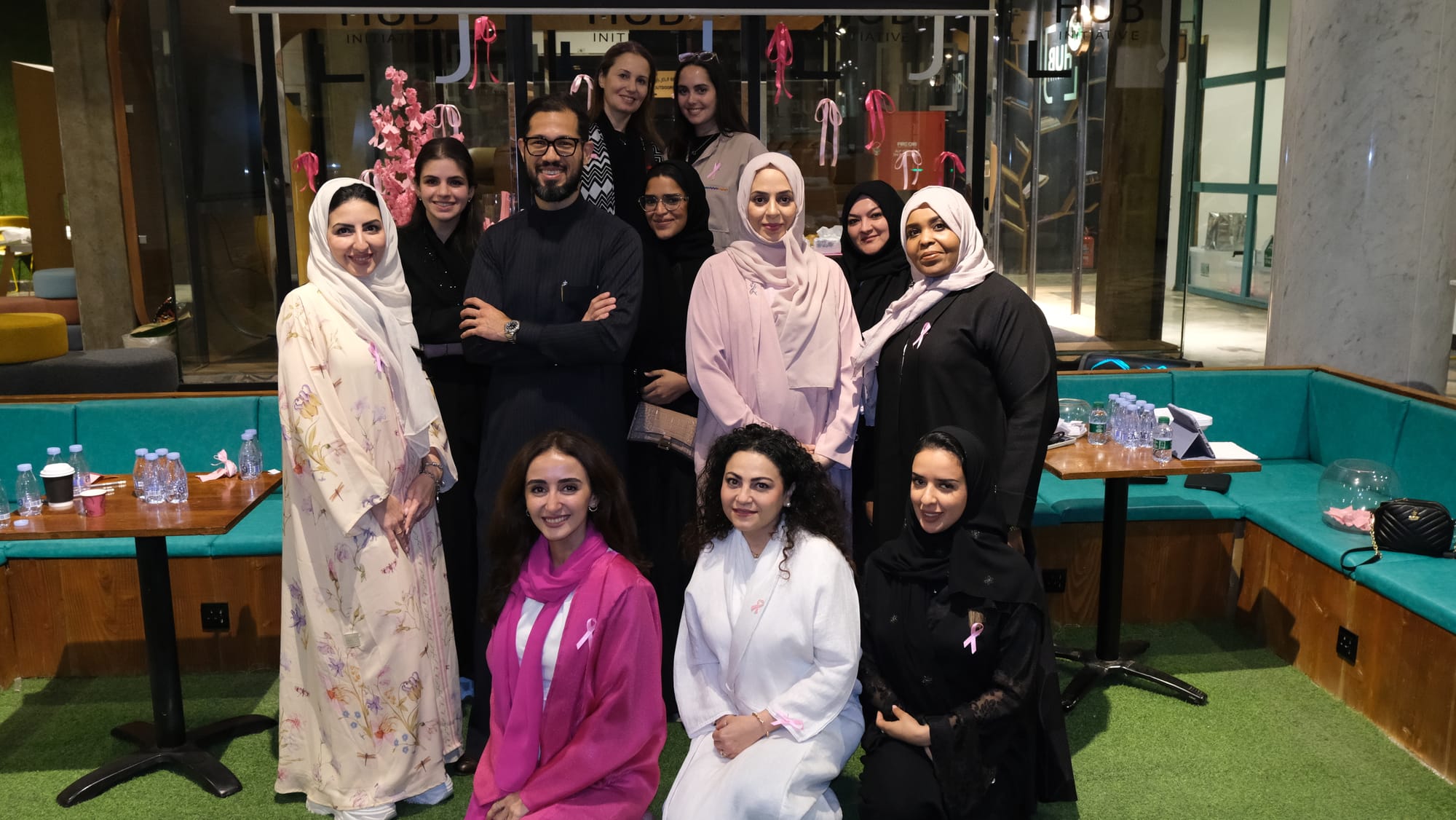
Rabab Hajjar, Dr Ayman Linjawi, Dr Osamah and our members during Voices of Hope Jeddah
